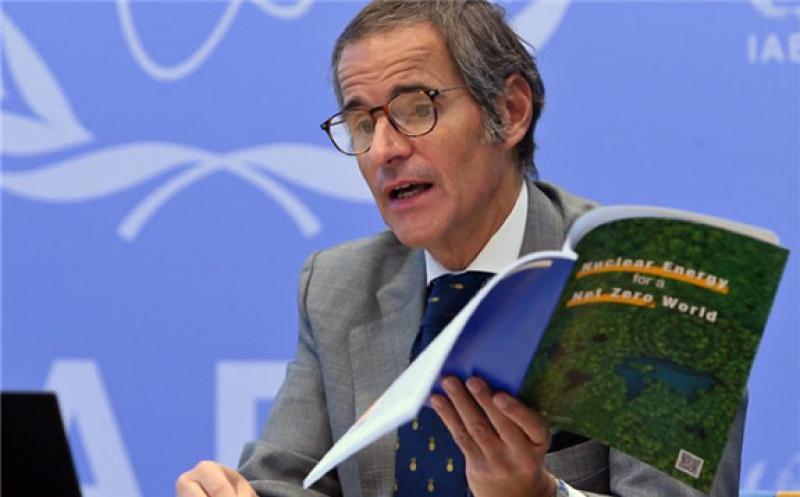“As we head toward [COP26], it is time to make evidence-based decisions and ramp up the investment in nuclear. The cost of not doing so is far too high to bear,” stated IAEA Director General Rafael Mariano Grossi.

Grossi made the statement in the latest report released by the International Atomic Energy Agency (IAEA), Nuclear Energy for a Net Zero World.
The special report highlights nuclear power’s critical role in achieving the goals of the Paris Agreement and Agenda 2030 by displacing coal and other fossil fuels, driving the deployment of renewable energy and becoming an economical source of clean hydrogen at scale.
The report was purposefully launched in the lead-up to COP26 and emphasises the reasons why nuclear must have a seat at the table whenever energy and climate policies are discussed.
A key topic at COP26 will be accelerating the transition from coal. According to the report, replacing 20% of coal generation with 250GW of nuclear generation would reduce emissions by 2 Gt CO2, or around 15% of electricity sector emissions per year.
“Over the past five decades, nuclear power has cumulatively avoided the emission of about 70 gigatonnes (Gt) of carbon dioxide (CO2) and continues to avoid more than 1 Gt CO2 annually,” said Grossi in his foreword to the report.
Key findings of the report include:
Nuclear power is vital for achieving net zero by ensuring 24/7 energy supply
Nuclear power provides stability and resilience to electrical grids and facilitates the wider integration of variable renewables
Nuclear power as a firm source of low carbon electricity is well suited to replace coal and other fossil fuels while also providing heat and hydrogen
Nuclear power represents one of the most effective investments for the post-pandemic global economic recovery
Nuclear power can be a significant driver of economic growth, generating jobs in many sectors and enabling a just transition to clean energy
The nuclear sector is well prepared to face the challenges posed by climate change including the risks of more frequent and more extreme weather events and has developed specific adaptation measures to mitigate these risks.
Poland is planning to build nuclear power plants (NPPs) to reduce reliance on coal, according to IAEA. Coal currently produces about 70% of the country’s electricity and accounts for some 200 000 jobs.
“The operation of NPPs in our country will help achieve the climate neutrality objective, positively affect the economy while creating new, highly specialized industry branches, and enhance the country’s energy security,” said Michal Kurtyka, Poland’s Minister of Climate and Environment, in a statement in the report. “It is estimated that new industry sectors linked to renewables and nuclear power will help create around 300 000 new jobs.”
The publication recommends a series of actions aimed at accelerating the wider deployment of nuclear power, including:
Introduce carbon pricing and measures to value low-carbon energy
Adopt objective and technology neutral frameworks for low carbon investments
Ensure markets, regulations and policies value and remunerate nuclear energy’s contribution to reliable and resilience low-carbon energy systems
Boost public investment and support for private investment in nuclear power
Promote diversified electricity systems to mitigate climate risks to energy infrastructure